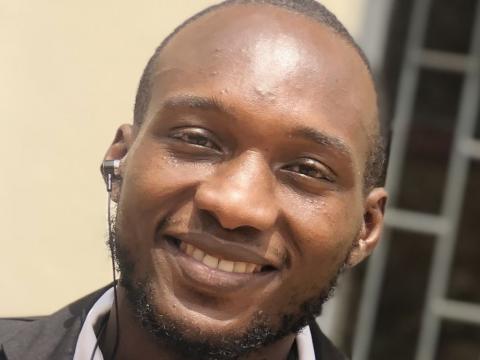By Ibrahim S. Mansaray
Every year, countless bodies are taken to the grave due to medical failures. Failures which can be avoided if only medical authorities and citizens alike can investigate the sources of these problems and try to resolve them once and for all.
Wrong Diagnoses, wrong treatments, wrong administration of drugs, wrong operational and theatre procedures among others are the primary reasons for these countless avoidable deaths.
We need a revolution in our medical system. Merely building new hospitals and filling them with more sophisticated drugs, machines and other medical equipment will not solve the problem. Let's create an open policy system where we shall start looking into the causes of so many deaths, taking into consideration the data we can and can't see, searching for the background and finding new ways to once and for all reduce the alarming number of lives visiting the grave every hour due of medical failures. Failures that can be avoided in the first place.
Our health workers are doing a great job in the medical field by saving many lives everyday. Invariably, countless lives are condemned to the grave because of minor issues that could be prevented if only they are investigated, documented and adopted for present and future use.
Like all sciences, health practice is faced with many difficult and sometimes emergency decisions which lead to dangerous mistakes and errors. As put by Professor James Reason, one of the world's leading expert on system safety: " This is the paradox in a nutshell: health care by it nature is highly error-provoking-- yet health workers stigmatize fallibility and have had little or no training in error management or error detection."
In a sense we don't have to wait for the next generation to fight this out for us, let's do the necessary. Remember what Gary Kaplan said: " you can have the best procedures in the world, but they won't work unless you change your attitudes toward error."
"The underlying performance," said Mathew Syed, " is not psychological or motivational. It's largely conceptual. And until we change the way we think about failure, the ambition of high performance will often remain a mirage, not just in health care but elsewhere, too."
Please read "BLACK BOX THINKING” By Mathew Syed. In this book, a man lost his wife to a simple operation which gave rise to medical complications leading to the painful death of his wife. His wife died, but the husband was courageous to investigate the cause of the death of his wife. And although he was told the normal medical lingo – "it was a complication and something went wrong, we are sorry" – he refused to take that for an answer and wrote for an investigation to be launched.
After the investigation, the data gathered informed the husband and the Americans that minor errors like loss of time, inferiority thought by the nurse to tell the doctors what to do, among others, were the leading causes. These findings were documented, distributed, seminars were held nation-wide (even broadcast on the BBC) medical practitioners were equally informed of the situation-- consequences and ramifications.
After this publication, doctors around the globe started emailing the husband thanking him for his findings and how they had helped them during emergency operations and making the correct life saving decisions during difficult times. His wife was already buried, and for many they could have just mourned and moved on. But Martin did not give up and this was why, as he said, "so that others may learn and even more may live."
Are we just going to continue to mourn, or do something about it once and for all?
Why can’t we, when health workers can learn and more may live?
Ibrahim S. Mansaray is a Final Honours Linguistics student at Fourah Bay College.
Email: mansarayshon@yahoo.com
Copyright © 2020 Politico Online








